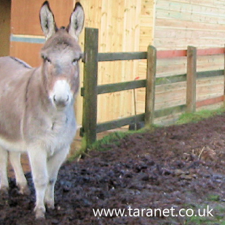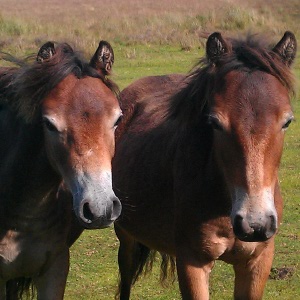How To Help Your Horse with Mud Fever Naturally

What Your Need To Know About Mud Fever and Your Horse?
Mud Fever is a term used for a skin condition that affects the lower limbs of horses. It may also be known as other terms such as "Cracked Heels", Mud Rash or Greasy Heel. The veterinary term is "Equine Pastern Dermatitis".
There may often be bacterium associated with the condition, including: Dermatophilus congolensis, Staphylococcus spp., and occasionally Pseudomonas aeruginosa.
The leg areas of the horse most affected are the heels, pasterns, fetlock and lower cannon.
Sore and/or scabby lesions or cracked skin will develop on affected areas. Discharge from the skin stretching leads to scabs and tufted/matted hair. The skin is often sore to the touch. Swelling around the affected area is not uncommon.
Severe lameness can occur as a result of the skin irritation - with some horses being unable to put their foot to the ground.
What causes Mud Fever?
Despite the name, it doesn't only affect horses who are kept in deep muddy conditions.
Whilst it's usually more common in wet conditions. It can be seen in dry conditions - particularly if the horse has a white sock/stocking on his/her leg - suggesting that some photosensitisation effects maybe involved.
Can all horses be affected?
Yes, all breeds of horses/ponies can be affected. Donkeys can also get mud fever too. Those which have long hair around their lower legs maybe particularly affected - though not always.
How to prevent Mud Fever?
- Rotate fields - To help reduce the build-up of too much mud, especially in gateways.
- Take care of gateways - create a hardstanding and/or use quality barkchips, rubber or other horse-friendly material to avoid gateways becoming very muddy.
- To clip or not to clip? This will often depend on the horse - eg. how hairy they are, how prone they are to mud fever. Pro's and con's include:
- Leaving the hair on lower limbs can help provide a natural protection against mud penetrating the skin
- Clipping very hairy legs can help them to dry more quickly, and also make it easier to spot the signs of mud fever and take action to avoid it getting worse.
- Boots - some boots are specially designed to help provide protection against the mud. However, it is really important to make sure that they are correctly fitting and of a good horse-friendly material, so don't cause any skin irritation themselves.
- Washing legs - good idea or not?
- This is a tricky one! Some people find washing the legs really useful for helping to avoid mud fever taking hold, and others find it doesn't help!
- Gently washing with warm water (not cold or too hot) will help soften scabs without damaging the skin. Using a natural shampoo - like Aloe Vera can be helpful to cleanse and moisturise the skin. It's essential that legs are thoroughly dried afterwards - dabbing with kitchen towel or a towel is ideal.
At the first sign of mud fever - take action! It's much better to stop it getting worse than to treat a severe episode of mud fever.
Can any complementary therapies help?
Yes a holistic approach can be used to help prevent, treat and manage Mud Fever - alongside or instead of conventional medicine.
Animal Aromatics
Essential Oils can be helpful in managing/treating skin conditions, including Mud Fever. However, as they can be very powerful, it's recommended that you consult with a qualified equine aromatherapist, who will be able to advise on the most appropriate remedy for your equine.
Nutritional Support including Herbal Feed Supplements
- Helping to boost the horses' natural defences against mud fever can be beneficial in avoiding severe episodes of mud fever.
- A diet comprising good quality food, so access to vitamins and minerals will help to promote good health. Different herbal supplements can also be useful added to the feed, including those containing:
- Aloe Vera Gel
- MSM
- Zinc
Homeopathy
There are several homeopathic remedies which maybe helpful – including Graphites and Thuja.
However, the best one for your equine will depend specifically on the individual and his/her particular response to the skin irritation. A specialist homeopathic vet will be able to advise you. (More info at the British Association of Homeopathic Veterinary Surgeons.)
Laser
Low Level Laser Therapy is often used to help with wound care and to relieve skin ailments. In properly skilled and knowledgeable hands, this can help cases of mud fever. As with all therapies, always consult your vet before using Laser Therapy.
Skincare
There are many topical products that can be used to provide both protection and treatment against the irritation. Our favourite products here are using Petroleum Jelly as a barrier, and soothe the skin irritation with an Aloe Vera spray, Aloe Vera Gelly or Aloe with Bee Propolis.
Which approach will work best?
Every equine is different – some will need to be kept in a dry yard or stable until the condition is controlled and improved. Different horses will respond to a treatment more quickly and more effectively than how another horse, pony or donkey will.
So if you know of an equine who has had his/her mud fever improve through a particular intervention, although it may work for your own animal, it may not. The reverse is also true. A treatment may help your equine, that hasn’t helped another. Even in the same yard. So it’s worth keeping an open mind to find the best solution for your animal!
As with all complementary therapies do seek the advice of your Vet first before using. Get a professional diagnosis that it is mud fever, or if is actually another skin condition, as then it may need different treatment. A therapist will always need your Vet's permission before treating your animal, and regular liaison between the two professionals can often bring greater results to your animal's health anyway.
Like advice on where to find a complementary therapist or specialist holistic Veterinary Surgeon for your animal? Email us at info@taranet.co.uk - we're happy to help!

Get more information on how to help care for your animal holistically by having a look through our holistic care for animals advice pages:
- Equine Laminitis and Ways to Help Holistically
- Helping Pets Cope with Loud Noises
- Older Animals - Ways to Help Holistically
- Osteoarthritis - Help Your Animal Holistically
- Sarcoids and Horses
- Sheep - a Natural Approach
- Summer Healthcare for Animals
- Sweet Itch and Horses, Ponies and Donkeys
- Tendon Injuries and Horses
